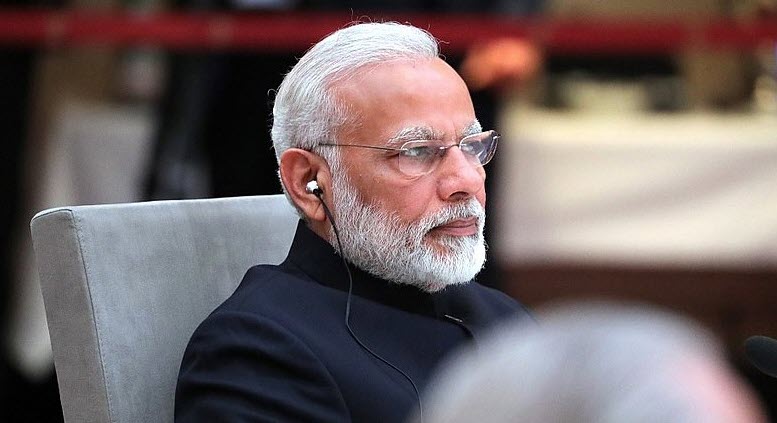Delhi, 26 August (Argus) — India’s federal government and some state governments plan to extend a five-month Covid-19 lockdown, possibly by another month, with infection rates in the country rising the fastest in the world.
The western state of Maharashtra, which has the highest number of coronavirus cases in India at more than 700,000, plan to extend the lockdown beyond 31 August. The northern state of Punjab, which has over 40,000 coronavirus cases, is considering the same move. Tamil Nadu, with around 390,000 cases and India’s second-most infected state, is expected to extend the lockdown through next month for some activities and in certain areas. West Bengal state may also continue the lockdown in a sporadic manner on certain days of the week.

Indian Prime Minister Narendra Modi (Photo: Prachatai/Flickr)
India has around 3.3mn coronavirus cases now. These are showing no signs of plateauing or peaking yet, according to Dr Randeep Guleria, one of India’s top medical experts and head of state-owned All India Institute of Medical Science, the country’s top hospital. Testing rates are still among the lowest in the world, with India testing 27 per 1,000 as on 24 August, according to Oxford University’s Our World in Data. This compares with 219 tests in the US and 136 in Saudi Arabia.
India’s federal and state governments have failed to improve testing and contact tracing, and even the country’s shabby healthcare infrastructure.
Prime Minister Narendra Modi’s government had assumed that the country’s lockdown, ranked the world’s most stringent when it first took effect on 25 March, would be a panacea to the pandemic. Instead, the lockdown led to a total collapse of economic activity and fuel demand. A hasty reopening of the economy, with people not properly following social distancing and face mask rules, led to a steep rise in cases and India becoming the world’s third-most infected nation after the US and Brazil.
Diesel consumption fell by 19pc in the first two weeks of August compared with a month earlier and was down by 23pc from the same period in 2019, state-controlled refiners said. Private-sector refiner Reliance Industries has indefinitely delayed plans to sell a 20pc stake to Saudi Aramco, while Delhi has repeatedly postponed the bid deadline to invest in state-controlled refiner Bharat Petroleum, blaming travel disruptions caused by the Covid-19 outbreak.
The pandemic has also raised concerns whether state-controlled Saudi Aramco and Abu Dhabi’s state-owned refiner Adnoc will stick to their commitment to invest in the much-delayed 1.2mn b/d refinery project in Maharashtra, costing over $65bn.
India’s economy will continue to contract until September, the Reserve Bank of India said. Other analysts have predicted a contraction of as much as 7.5pc in the 2020-21 fiscal year ending in March. The country’s GDP growth was already anaemic in the last fiscal year at 4.2pc, the lowest in 11 years, with diesel demand shrinking and flat overall fuel use.

